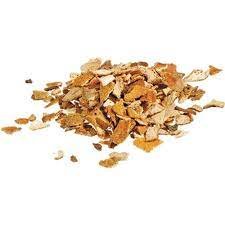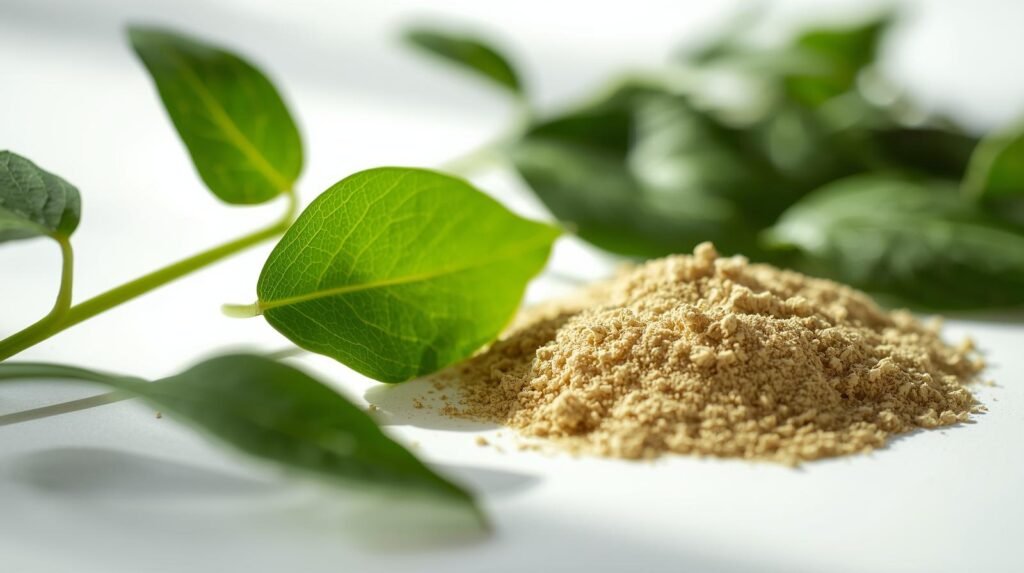12 Amazing Ways Saffron Can Transform Your Health and Well-Being
Table of Contents
- Introduction
- What Is Saffron?
- Health Benefits of Saffron
- Antioxidant Power
- Cardiovascular Health and Blood Pressure
- Sleep Improvement
- Mood Enhancement and Anxiety Relief
- Weight Management
- Saffron for Skin and Hair
- Skin Benefits and Brightening Effects
- Anti-Aging and Anti-Inflammatory Properties
- Hair Health and Scalp Care
- Saffron and Eye Health
- Other Potential Benefits
- Cognitive Function and Memory
- PMS Symptom Relief
- Sexual Health Support
- Safety, Side Effects, and Precautions
- Recommended Daily Dosage
- Considerations for Pregnant Women and Children
- Risks of Overconsumption
- FAQs About Saffron
- Conclusion
Introduction
Saffron, derived from the delicate red stigmas of the Crocus sativus flower, is celebrated as one of the most precious spices in the world. Known for its distinct aroma, vibrant color, and subtle flavor, saffron has been prized for centuries not only in cooking but also in traditional medicine and cultural rituals. Beyond its culinary appeal, saffron is gaining recognition for a variety of potential health benefits, including mood enhancement, improved sleep, antioxidant support, and even skin and hair care. This guide explores saffron’s unique properties, practical uses, and scientifically supported benefits, providing a comprehensive look at why this golden-hued spice continues to captivate chefs, wellness enthusiasts, and researchers alike.

What is saffron?
Saffron is a highly prized spice derived from the stigma (the thread-like part) of the Crocus sativus flower, commonly known as the saffron crocus. Each flower produces only three stigmas, which are carefully hand-harvested and then dried to create the vivid red-orange threads we use in cooking.
It is known for its distinctive aroma, slightly bitter taste, and golden-yellow coloring properties when added to dishes. Saffron is one of the most expensive spices in the world due to the labor-intensive harvesting process and the large number of flowers required to produce even a small amount of spice.
Beyond culinary uses, saffron has also been used historically for medicinal, cosmetic, and dye purposes.
What Are the Health Benefits of Saffron?
Can Saffron Lower Blood Pressure?
Both scientific research and traditional medicine suggest that saffron may support healthy blood pressure levels. Its potential effects are largely attributed to antioxidant and anti-inflammatory compounds, particularly crocin and crocetin, which can help relax blood vessels and improve blood circulation. This vasorelaxant effect may reduce pressure on artery walls, contributing to lower blood pressure readings.
Scientific Evidence:
A study published in 2017 in the Journal of Cardiovascular and Thoracic Research found that taking 100 mg of saffron extract daily over eight weeks led to reductions in both systolic and diastolic blood pressure in patients with mild hypertension. The antioxidants crocin and crocetin are believed to relax blood vessels and reduce oxidative stress, contributing to these positive effects.
Mechanism of Action:
Saffron’s bioactive compounds may enhance nitric oxide production, which dilates blood vessels and improves blood flow. Additionally, its anti-inflammatory properties may help reduce arterial stiffness, further supporting cardiovascular health.
Practical Use:
Saffron can be incorporated through simple methods such as saffron tea steeping 5–10 threads in hot water—or through standardized supplements in doses of 20–100 mg daily. Consistency is key, and it is essential to consult a healthcare provider, particularly if you are taking blood pressure medications, as saffron may enhance their effects.
While research is promising, saffron’s blood pressure-lowering potential is moderate and should be considered a supportive strategy alongside diet, exercise, and medical guidance rather than a replacement for treatment.
Is Saffron Good for Sleep?
Saffron has been used for centuries as a natural remedy to promote relaxation and enhance sleep quality. Its potential as a sleep aid is linked to its ability to influence neurotransmitters in the brain, particularly serotonin (feel-good) hormone, which plays a central role in regulating mood and sleep cycles. By helping to reduce anxiety and calm the nervous system, saffron may make it easier to fall asleep and stay asleep.
Research Insights:
A 2021 study published in Sleep Medicine found that 28 mg of saffron extract daily for 28 days improved sleep quality in adults experiencing mild sleep difficulties. Participants reported faster sleep onset and longer sleep duration, benefits likely linked to safranal, a compound in saffron with calming effects on the nervous system.
How It Works:
Saffron may increase levels of serotonin and GABA, neurotransmitters that promote relaxation and regulate sleep cycles. Its mood-enhancing properties can also reduce anxiety, which is a common barrier to restful sleep.
Usage Tips:
- Saffron Tea: Steep 5–8 threads in warm water or milk, optionally adding a touch of honey, 30–60 minutes before bedtime.
- Supplements: Standardized saffron capsules in doses of 15–30 mg may also support sleep.
- Caution: Avoid high doses (over 5 g daily), as excessive amounts may overstimulate rather than relax the nervous system.
While saffron shows promise as a natural sleep aid, it is not a cure-all. For optimal results, combine its use with good sleep hygiene practices, such as limiting screen time before bed, and consult a healthcare professional for chronic insomnia or persistent sleep disorders.
What Does Saffron Do for Your Skin?
Saffron has a rich history in skincare, prized for its ability to brighten, protect, and rejuvenate the skin. Many of the same bioactive compounds that support internal health such as crocin, crocetin, and safranal also deliver benefits when applied topically or incorporated into beauty routines.
Key Benefits for Skin:
- Brightening: Saffron is a natural skin illuminator. Its compounds can help reduce hyperpigmentation and dark spots, promoting a more even and radiant complexion. A 2019 study published in Phytotherapy Research highlighted saffron’s potential to lighten dark spots by inhibiting melanin production.
- Anti-Aging and Antioxidant Effects: The antioxidants in saffron combat free radicals, which are major contributors to premature aging. Regular use may help reduce the appearance of fine lines and wrinkles, while also supporting collagen production to improve skin elasticity and firmness.
- Soothing and Anti-Inflammatory: Saffron’s anti-inflammatory properties can calm irritation, redness, and acne-prone skin. Traditional skincare practices, such as combining saffron with milk or honey in masks, leverage these soothing effects.
How to Use Saffron for Skin:
- DIY Mask: Soak 5–10 saffron threads in 2 tablespoons of milk for 20 minutes. Apply the mixture to clean skin for 10–15 minutes, then rinse off.
- Commercial Products: Look for saffron-infused serums or creams with standardized extracts to ensure potency and consistency.
Precautions:
- Always patch-test before applying saffron topically to avoid allergic reactions.
- Use high-quality saffron, as adulterated or low-grade products may reduce effectiveness and cause irritation.
While saffron can enhance skin health over time, it is not a quick fix. Consistent use, combined with a balanced skincare routine, yields the best results for radiant, healthy skin.
Can Saffron Help with Hair Growth?
Saffron’s benefits for hair health are primarily linked to its ability to support scalp health and circulation. Its antioxidant and anti-inflammatory properties may create an environment conducive to stronger, healthier hair. While saffron is not a miracle cure for hair loss, it can be a valuable addition to a holistic hair care routine.
Potential Benefits and Mechanisms:
- Scalp Cleansing: Saffron may help remove impurities and product buildup that can clog hair follicles, promoting a healthier foundation for hair growth.
- Improved Circulation: By enhancing blood flow to the scalp, saffron ensures hair follicles receive essential nutrients, supporting hair strength and vitality.
- Antioxidant and Anti-Inflammatory Effects: Compounds like crocin may reduce scalp inflammation and address conditions such as dandruff or mild psoriasis, which can interfere with healthy hair growth.
Research Insights:
While scientific studies are limited, preliminary evidence is promising. A 2020 animal study published in the Journal of Ethnopharmacology showed that saffron extracts increased blood flow to skin tissues, suggesting a potential benefit for hair follicle nourishment. Traditional remedies in Persia and India also utilize saffron-infused oils for promoting hair vitality.
Practical Application:
- DIY Hair Oil: Bloom 5–10 saffron threads in 1 tablespoon of warm coconut oil, then massage into the scalp weekly.
- Holistic Approach: Combine topical use with a nutrient-rich diet containing vitamins and minerals like biotin, zinc, and iron, which are critical for hair growth.
Caveats:
- Saffron alone cannot reverse baldness or severe hair loss.
- Results are largely anecdotal, and more research is needed to confirm its efficacy.
- Consult a dermatologist for persistent scalp or hair conditions, including alopecia.
In conclusion, saffron is much more than a culinary treasure. Its unique chemical composition offers a range of potential benefits for the body and mind from improving sleep and supporting cardiovascular health to enhancing skin radiance and maintaining a healthy scalp. While evidence for hair growth is still emerging, saffron’s traditional and scientific backing makes it a versatile, valuable addition to wellness and self-care routines.
Is Saffron Good for Anxiety and Depression?
A 2020 meta-analysis reported that daily saffron supplementation of 30 mg was comparable in effectiveness to certain conventional antidepressant medications for mild-to-moderate depression. Beyond depression, saffron has also been studied for its potential to reduce anxiety and manage PMS-related mood fluctuations, suggesting a broader role in supporting emotional balance.
Practical Considerations:
- Saffron may be considered a complementary approach for mood support, but it should not replace professional treatment for severe depression or anxiety.
- Typical supplement doses range from 15–30 mg daily, but consulting a healthcare professional is essential, especially when combining saffron with other medications.
In summary, saffron’s mood-enhancing properties and impact on neurotransmitters make it a valuable natural option for those seeking support with mild depression, anxiety, or mood-related symptoms.
Antioxidant Power of Saffron
Saffron owes much of its vibrant red color to crocin and crocetin, two potent antioxidant compounds. These antioxidants play a crucial role in protecting cells from oxidative stress, a process linked to premature aging, cardiovascular disease, and certain types of cancer.
In addition to their protective effects, saffron’s antioxidants may help reduce inflammation, support overall heart health, and promote general well-being. Regular incorporation of saffron, whether in cooking or as a supplement, allows you to leverage these natural protective properties for long-term health benefits.
What Does Saffron Do for Eye Health?
Saffron may play a supportive role in protecting vision and promoting eye health, particularly in age-related conditions. Research indicates that crocin, one of saffron’s key compounds, has protective effects on retinal cells, helping to maintain proper visual function.
For example, studies have shown that taking 20 mg of saffron daily improved retinal function in patients with early-stage age-related macular degeneration (AMD). By safeguarding eye cells from oxidative stress and supporting retinal health, saffron may help slow the progression of certain vision-related conditions.
While more research is needed to fully understand its long-term benefits, saffron shows promise as a natural supplement to support eye health alongside a balanced diet and regular eye care.
Can Saffron Help with Weight Loss?
Emerging research suggests that saffron may support weight management by helping to curb appetite and reduce unnecessary snacking. Its bioactive compounds are believed to influence the brain’s signals related to hunger and satiety, making it easier to maintain a healthy eating pattern.
For example, a 2010 study found that women who took saffron extract reported feeling fuller between meals, which contributed to modest weight loss over eight weeks. This appetite-regulating effect has made saffron a popular natural supplement in wellness and weight management routines.
Practical Use:
- Saffron supplements are typically used in doses of 15–30 mg daily for appetite control.
- Combining saffron with a balanced diet and regular physical activity is essential for effective, sustainable weight management.
While saffron shows potential as a supportive tool for reducing cravings and promoting satiety, it is not a standalone solution for significant weight loss. Consistency, lifestyle habits, and overall nutrition remain the most important factors.
Other Potential Benefits of Saffron
- Support Cognitive Function: Saffron may improve memory and cognitive performance, making it a subject of interest in Alzheimer’s research.
- Ease PMS Symptoms: Some evidence indicates that saffron supplementation can help reduce mood swings, irritability, and other premenstrual symptoms.
- Promote Sexual Health: Saffron has been traditionally used to support sexual wellness and vitality in both men and women.
While these benefits are promising, more comprehensive studies are needed to confirm saffron’s effectiveness in these areas. Nonetheless, its unique chemical composition and antioxidant properties make saffron a versatile natural supplement with potential wide-ranging effects.
Can Pregnant Women or Children Consume Saffron?
Saffron can be used safely in small culinary amounts for both pregnant women and children, such as in cooking or beverages. However, caution is needed with supplement-level doses:
- Pregnant Women: High doses of saffron may stimulate uterine contractions, which could pose risks during pregnancy. It is safest to avoid large amounts or concentrated supplements and consult a healthcare professional before use.
- Children: Saffron is generally considered safe in the amounts typically used in food. For supplements or concentrated extracts, medical guidance is recommended to ensure appropriate dosage and safety.
In summary, moderate culinary use is safe, but concentrated forms or high doses should be approached carefully under professional supervision.
Are There Any Side Effects of Saffron? Is It Safe to Consume?
Saffron is generally considered safe when used in culinary amounts or standard supplement doses. However, high doses typically over 5 grams per day can be toxic and may cause serious health issues.
Special Precautions:
- Pregnancy: Large amounts of saffron may stimulate the uterus, so pregnant women should avoid high doses.
- Medical Consultation: Anyone considering saffron supplements should consult a healthcare professional, especially if taking medications or managing chronic health conditions.
When used responsibly, saffron can be a safe and beneficial addition to your diet or wellness routine, offering a wide range of health, skin, and cognitive benefits without significant risk.
What Is the Recommended Daily Dosage of Saffron?
The effective and safe dosage of saffron depends on the form used:
- Culinary Use: Small amounts, such as a few threads added to dishes or beverages, are generally safe for daily consumption.
- Supplement Form: Research studies and traditional use suggest a typical dose of 15–30 mg per day for general health benefits, including mood support, sleep improvement, and antioxidant effects.
- Upper Limit: Consuming more than 5 grams per day can be toxic and should be strictly avoided.
It is always best to start with lower doses, monitor your body’s response, and consult a healthcare professional if using saffron supplements, particularly for pregnant women, children, or individuals on medication.
Saffron FAQs
1. How does saffron differ from turmeric in terms of use and benefits?
While both are vibrant, plant-based spices, saffron is prized for its aroma, delicate flavor, and medicinal properties, whereas turmeric is primarily valued for its anti-inflammatory and coloring properties. Saffron is used sparingly due to its cost, while turmeric is more versatile in daily cooking.
2. Can saffron enhance mental clarity or memory?
Preliminary studies suggest saffron may support cognitive function. Compounds like crocin may help improve memory and focus, making saffron a subject of interest in Alzheimer’s research.
3. Is saffron effective in reducing stress and anxiety?
Yes, saffron has been shown to influence serotonin levels, potentially helping reduce mild anxiety and support emotional balance. It has also been studied for PMS-related mood swings.
4. What is the best way to consume saffron for sleep benefits?
For sleep support, steep 5–8 threads of saffron in warm milk or water 30–60 minutes before bedtime. Standardized supplements (15–30 mg daily) can also be used, but high doses should be avoided.
5. How can saffron improve skin complexion naturally?
Saffron’s antioxidants, crocin and crocetin, can reduce hyperpigmentation, brighten the skin, and combat premature aging. Topical use in masks or serums may help improve skin radiance over time.
6. Can saffron promote hair health, and how?
Saffron may support hair by improving scalp circulation, reducing inflammation, and cleansing follicles. It can be used in saffron-infused oils or masks as part of a holistic hair care routine, though results are supportive rather than curative.
7. Are there any precautions for pregnant women or children using saffron?
Small culinary amounts are generally safe, but high doses or concentrated supplements should be avoided during pregnancy due to potential uterine stimulation. Children should only use saffron in food amounts, and supplements should be taken under medical guidance.
8. Can saffron support cardiovascular health and regulate blood pressure?
Yes, studies suggest saffron’s compounds, such as crocin and crocetin, may relax blood vessels, reduce oxidative stress, and improve circulation, contributing to better heart health and moderate blood pressure support.
9. Is saffron helpful for weight management?
Saffron may help curb appetite and reduce snacking, supporting modest weight management when combined with a healthy diet and lifestyle.
10. What are the risks of consuming too much saffron?
High doses (over 5 grams daily) can be toxic, potentially causing nausea, dizziness, or more severe health effects. Always use saffron in culinary amounts or standard supplement doses (15–30 mg daily).
11. How can saffron support eye health?
Saffron’s crocin protects retinal cells and may improve retinal function, particularly in early-stage age-related macular degeneration (AMD). Daily doses of around 20 mg have been used in studies.
12. Are there any lesser-known benefits of saffron?
Emerging research indicates saffron may help reduce PMS symptoms, support sexual health, and enhance mood, although these benefits require further study for confirmation.
Conclusion
Saffron is far more than a luxurious culinary ingredient. It is a versatile natural supplement with a wide range of potential benefits for the body, mind, and skin. From enhancing mood, improving sleep, and supporting heart and eye health to brightening skin and promoting a healthy scalp, saffron’s unique bioactive compounds make it a valuable addition to a balanced lifestyle. While research continues to uncover its full potential, moderate use , saffron offers a safe and accessible way to enjoy both its flavor and health-promoting properties. As with any supplement, responsible use and professional guidance are key to maximizing benefits while minimizing risks.





















